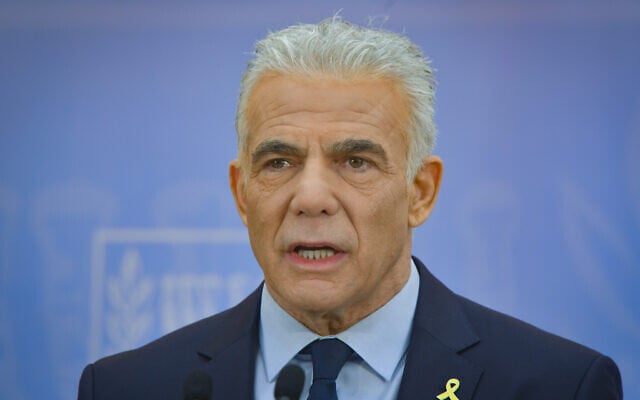


Prime Minister Benjamin Netanyahu’s government on Tuesday evening voted to approve a NIS 31 billion ($9 billion) increase to the 2025 state budget — NIS 1.6 billion ($473 million) of which will go toward humanitarian aid for Gaza.
This angered some members of Netanyahu’s cabinet as well as opposition figures like Yisrael Beytenu chairman Avigdor Liberman, who accused the government of “paying taxes to Hamas.” The additional funds will still require the approval of the Knesset.
The increase will primarily go toward defense spending and will be accompanied by an across-the-board cut of 3.35 percent of ministerial budgets set to go into effect at the beginning of next year.
According to the Ynet news site, the ministries with already larger budgets will be the most influenced by the cuts, with the National Security Ministry set to face the biggest slash to its spending.
National Security Minister Itamar Ben Gvir and Education Minister Yoav Kisch said in a joint statement on Tuesday morning that they would oppose the budget proposal being presented to the government unless it included funding for security at educational institutions in the coming school year. Kisch also warned that failing to allocate the money could delay the start of the school year.
Speaking during the cabinet meeting, Kisch complained that while aid to Gaza was being increased, he had not received the funds he requested for mental health assistance for students, telling Smotrich: “You prefer the children of Gaza over the children of Israel.” Smotrich is a “small man with a big ego,” he said, according to a transcript leaked to Hebrew media.
Ben Gvir also blasted Netanyahu during the meeting, calling him “the one responsible” for this “disgrace,” according to leaked transcripts.
In response to criticisms, Netanyahu insisted that “the money does not go to Hamas, but to the aid centers, to the residents of Gaza,” prompting Ben Gvir to ask “why prioritize the children of Gaza?”
Israeli military operations have collapsed just about all services in Gaza, and it is responsible under international law to facilitate the entry of humanitarian aid into the war zone.
In a statement responding to the criticism, Smotrich panned the minority of “populist ministers” who were more interested in “hurling personal insults and generating headlines,” while the majority of cabinet members showed national responsibility by passing the budget.
After it was passed in March, the controversial NIS 755 billion ($205 billion) 2025 state budget was lauded by Smotrich, who declared that it had “everything we need to win on the front and the home front.”
Earlier this month, the far-right politician acknowledged advancing the transfer of billions of shekels from Israeli public coffers toward the provision of humanitarian aid to Gaza, after having previously opposed the entry of any assistance to the Hamas-ruled enclave.
In a statement of his own, Ben Gvir, whose Otzma Yehudit party ran on a joint ticket with Smotrich’s Religious Zionism in the last election, called the decision “to fund aid for the Gazans at the expense of the Israeli taxpayer” a “shame and disgrace” that would end up helping Hamas.
Avigdor Liberman, chairman of the hawkish Yisrael Beytenu opposition party, used similar rhetoric, arguing in a post on X that the additional aid had been approved “despite the IDF’s warning that the vast majority of the ‘aid’ reaches Hamas.”
“The government is stealing from the citizens and paying taxes to Hamas,” Liberman charged.
Opposition leader Yair Lapid slammed the move as dangerous for Israelis’ health.
“The government’s decision to cut the health basket means both shame is dead, and sick people will die as well. Funding could come from closing 15 superfluous ministries and canceling coalition funds for corruption and draft dodgers,” Lapid declared in a tweet.
“Instead, the worst government in Israel’s history is cutting healthcare, education, and welfare. Disgraceful.”
The amended budget also garnered criticism from Netanyahu’s former ultra-Orthodox allies, with leaders of the United Torah Judaism party railing against a cut of NIS 481 million ($142 million) in taxpayer money set aside for Haredi schools’ eventual inclusion in the government’s New Horizon program, which funds work in small groups between teachers and pupils and bumps up teacher salaries, among other initiatives.
The program is currently restricted to state schools and does not apply to independent Haredi institutions, which do not teach secular subjects. The money is currently frozen until it can eventually be legally allocated.
UTJ MK Moshe Gafni appeared to threaten to vote against increases to the defense budget on Tuesday afternoon, saying that “next month, when the defense budget comes up for approval in the Knesset and the Finance Committee… we will consult the great Torah sages on how to vote, in light of all the recent developments.”




